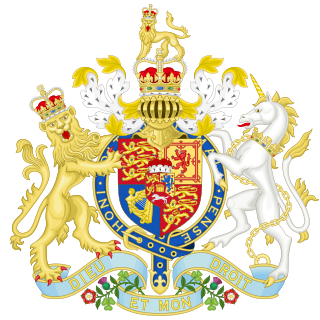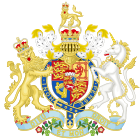
The Court of Session is the highest national court of Scotland in civil cases. The court was established in 1532 to take on judicial functions previously exercised by the Scottish king and nobility. Its early jurisdiction overlapped with a number of other royal, state and church courts. As these were disbanded, the role of the Court of Session ascended. The acts establishing the United Kingdom provided that the Court of Session will "remain in all time coming". Today the court hears cases from any part of Scotland on any issue, other than criminal cases, which belong to its sister court, the High Court of Justiciary.

The High Court of Justiciary is the supreme criminal court in Scotland. The High Court is both a trial court and a court of appeal. As a trial court, the High Court sits on circuit at Parliament House or in the adjacent former Sheriff Court building in the Old Town in Edinburgh, or in dedicated buildings in Glasgow and Aberdeen. The High Court sometimes sits in various smaller towns in Scotland, where it uses the local sheriff court building. As an appeal court, the High Court sits only in Edinburgh. On one occasion the High Court of Justiciary sat outside Scotland, at Zeist in the Netherlands during the Pan Am Flight 103 bombing trial, as the Scottish Court in the Netherlands. At Zeist the High Court sat both as a trial court, and an appeal court for the initial appeal by Abdelbaset al-Megrahi.

The Courts Act 1971 is an act of the Parliament of the United Kingdom, the purpose of which was to reform and modernise the courts system of England and Wales, as well as effectively separating the business of the criminal and civil courts.

The Inner House is the senior part of the Court of Session, the supreme civil court in Scotland; the Outer House forms the junior part of the Court of Session. It is a court of appeal and a court of first instance. The chief justice is the Lord President, with their deputy being the Lord Justice Clerk, and judges of the Inner House are styled Senators of the College of Justice or Lords of Council and Session. Criminal appeals in Scotland are handled by the High Court of Justiciary sitting as the Court of Appeal.

The Court of Session Act 1808 was an Act of the Parliament of the United Kingdom which reformed Scotland's highest court, the Court of Session. Reform of the Court of Session had been proposed as early as 1805 by the Whig government trying to impose a system based on that of England, especially the use of a civil jury trial. That particular government fell before their reform bill was enacted. In 1808, reform was pushed through by a Tory government. The Court was split into two divisions. Judgments of the new divisions could only be appealed to the House of Lords at the leave of the division, or in the case of a dispute between its judges. Decrees of the Lords Ordinary could only be appealed to the House of Lords after being reviews by the Divisional judges. The Act also established a commission to review the processes of the Court of Session, including the possibility of the introduction of jury trial and the creation of permanent Lords Ordinary. The Commissioner's review led to two further Acts, the Court of Session Act 1810 and the Court of Session Act 1813. These two Acts created the existing system of two divisions known as the Outer House and the Inner House. Trial by jury came later with the Jury Trials (Scotland) Act 1815.

The Court of Session Act 1813 was an Act of the Parliament of the United Kingdom which reformed Scotland's highest court, the Court of Session. The Act continued reforms to the Court of Session begun by the Court of Session Act 1808 and the Court of Session Act 1810, creating the divisions known as the Inner House and the Outer House.

The Law Terms Act 1830 was an Act of the Parliament of the United Kingdom that made various changes to the court system of England and Wales.

The Infanticide Act 1938 is an Act of the Parliament of the United Kingdom. It creates the offence of infanticide for England and Wales.
In British law and in some related legal systems, an enactment is spent if it is "exhausted in operation by the accomplishment of the purposes for which it was enacted".

The Short Titles Act 1896 is an act of the Parliament of the United Kingdom. It replaces the Short Titles Act 1892.

The Interpretation Act 1889 was an act of the Parliament of the United Kingdom that consolidated enactments relating to statutory construction and provided definitions to shorten the language used in acts of Parliament.

An Act of Sederunt is secondary legislation made by the Court of Session, the supreme civil court of Scotland, to regulate the proceedings of Scottish courts and tribunals hearing civil matters. Originally made under an Act of the Parliament of Scotland of 1532, the modern power to make Acts of Sederunt is largely derived from the Courts Reform (Scotland) Act 2014. Since 2013, draft Acts have also been prepared by the Scottish Civil Justice Council and submitted to the Court of Session for approval.

The Jurors (Scotland) Act 1745 was an Act of the Parliament of Great Britain, passed during the Jacobite Rising of 1745. Its long title was "An Act for the more easy and speedy Trial of such Persons as have levied, or shall levy War against His Majesty; and for the better ascertaining the Qualifications of Jurors in Trials for High Treason or Misprision of Treason, in that Part of Great Britain called Scotland." It was one of the Juries (Scotland) Acts 1745 to 1869.

The Criminal Justice Act 1948 is an Act of the Parliament of the United Kingdom. It implemented several widespread reforms of the English criminal justice system, mainly abolishing penal servitude, corporal punishment, and the right of peers to be tried for treason and felony in the House of Lords. The act also dealt with more minor aspects of criminal law, such as the procedure regarding bail. Early versions of the bill attempted to abolish the death penalty, but this would not occur until 1965.

The Sheriffs (Scotland) Act 1747 was an Act of the Parliament of Great Britain which applied only to Scotland. It stated that anyone who was prosecuted on or after 1 April 1748 for treason or misprision of treason could be tried anywhere in Scotland if the crime had been committed in any of the shires of Dunbartain, Stirling, Perth, Kincardine, Aberdeen, Inverness, Nairn, Cromarty, Argyll, Forfarshire, Banff, Sutherland, Caithness, Elgine, Ross, and Orkney. Normally a crime had to be tried in the shire where it had been committed. The Act also said that in such a trial, the jurors could come from adjoining counties, instead of the county where the trial was held.

The Treason Outlawries (Scotland) Act 1748 was an Act of the Parliament of Great Britain which applied only to Scotland. Its long title was "An Act to ascertain and establish the Method of Proceeding to and upon Outlawries for High Treason and Misprision of High Treason, in Scotland."

The Administration of Justice (Scotland) Act 1933 is an act of the Parliament at Westminster legislating for Scotland which introduced changes in Scottish legal procedure "following the recommendations of a Royal Commission which reported in 1927".

The Statute Law Revision Act 1894 is an Act of the Parliament of the United Kingdom.









